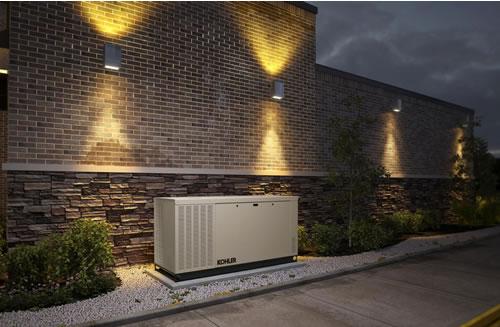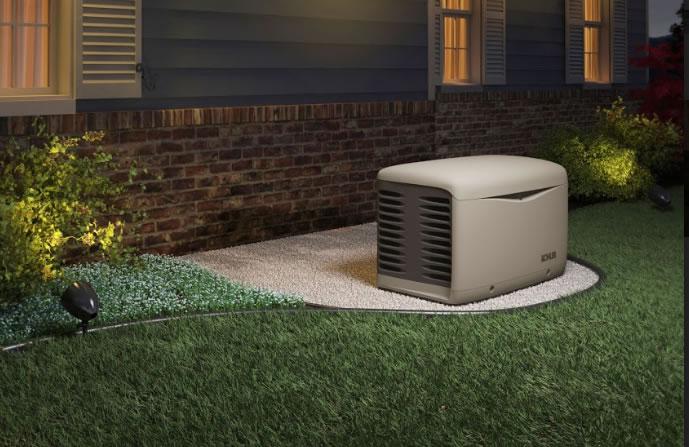First-time customers get $50 off electrical service.
$50OFFNot valid with any other offers Limit one couponper customer.
PRINTCall this Saturday to Get 10% OFF (Maximum $100 Off)
Call this Saturday to Get 10% OFF (Maximum $100 Off)
24-Hour Emergency Electricians in Greer

In recent years, power interruptions have become more frequent. Between unpredictable storms and an aging grid, it’s no longer unusual for residents to go hours or days without electricity. This has real consequences. A few hours without power can lead to spoiled food, lost work-from-home hours, and exposure to dangerous temperatures. For families with young children or elderly relatives, the risk grows fast. Mr. Electric is here to help. Investing in a reliable generator solution gives you control in uncertain situations, but there are many options to choose from. You’ll want to know what size unit your home needs, whether portable or standby makes more sense, and what to expect from a proper generator installation in Lyman, South Carolina. We’ll break it all down so you can make the right decision for your home and your budget.
If a generator is too small, it won't power your essential appliances. If it's too large, you’ll pay more than necessary upfront and in long-term fuel use, so sizing your generator correctly is the first and most important step. Start by making a list of the essentials you want to keep running when the power goes out. That usually includes your refrigerator, HVAC system, lights, sump pump, and maybe a few outlets for phones and laptops. Add up the wattage for each. Most homeowners in Lyman land somewhere between 7,000 and 20,000 watts, depending on the size of the home and the complexity of their electrical system. A standby generator installer in Lyman can perform a load calculation to determine the exact size you’ll need. For example, a 14-kilowatt standby unit will power most average-sized homes comfortably, but if you’re running multiple large appliances or have special medical equipment, you might need to go up a size. There’s no substitute for an in-person consultation with a qualified electrician.
Before your generator installer in Lyman can start the work, your home needs to be ready. That means selecting a proper location, checking zoning requirements, and clearing space for fuel and ventilation. Standby generators are typically installed on a concrete or composite pad outside your home. Local codes require a certain distance from doors, windows, and vents to ensure safety. Your installer will also make sure your natural gas line or propane tank is properly sized and located for easy hookup. Whether you’re planning a full installation or a generator replacement, these site-specific details matter. Don’t skip them or you’ll run into delays and compliance issues.

Some homeowners lean toward portable generators because of their lower price tag. For limited needs, they can be a smart short-term fix, but when you compare portable generators to whole-home systems, the difference in convenience, safety, and coverage is clear. Portable units require manual setup. You have to wheel them out, fuel them, plug in cords, and monitor usage closely. In heavy storms or winter cold, this isn’t always safe or practical. They also can’t power your entire home, and they usually rely on gasoline, which can be hard to store in large amounts. Standby generators are installed permanently and activate automatically when the power goes out. They run on natural gas or propane, so there’s no need to refuel during an outage. These systems are quieter, more efficient, and designed to handle your home’s full electrical load. You won’t have to choose between running the heat and charging your phone. If you’re tired of patchwork solutions and want peace of mind, a professionally installed standby system is the clear winner. A generator installation in Lyman doesn’t have to be complicated, especially when you’re working with the right team.
The full timeline for a new installation can vary depending on equipment availability, permitting, and site readiness. In most cases, once everything is approved, the physical installation takes about one to two days. Standby systems require both electrical and plumbing work, so coordination between trades is part of the process. Permits can take anywhere from a few days to a few weeks, depending on the local office. If you’re replacing an existing unit, the process tends to move faster. For a brand-new install, expect a full walkthrough and site planning appointment beforehand to make sure that your generator fits your property and complies with local code.
Investing in a backup power system keeps your household functional when the grid goes down. Whether you’re exploring your first installation or looking into generator replacement, taking action before the next outage hits is the smart move. Mr. Electric helps owners all over the region secure their homes and businesses with dependable power solutions. We offer reliable support for every stage of the process, from sizing and selection to final installation and inspection. If you’re looking for a generator installer in Lyman, South Carolina, who knows the terrain and understands the challenges that local homes face, we’re ready to help. Contact us today to schedule an appointment.
The tech was very knowledgeable and extremely helpful.
Top notch, Outstanding Emergency Service. These guys are for Real! Thanks Cody & Bob!
Mike and his team are true professionals. They are great communicators and you can really sense that he cares about his people and customers.
I highly recommend Mr. Electric of Greer. Very professional, showed up on time, and took care of our needs in a timely manner. The technician was very professional and answered all of our questions. Definitely will use them again in the future!